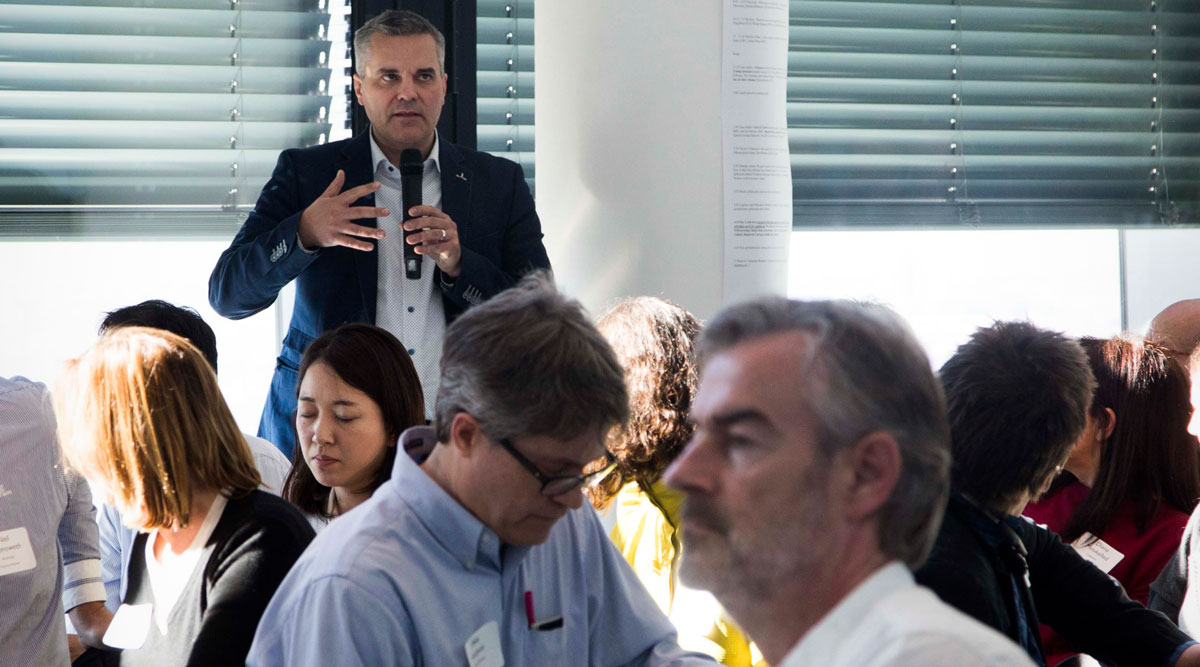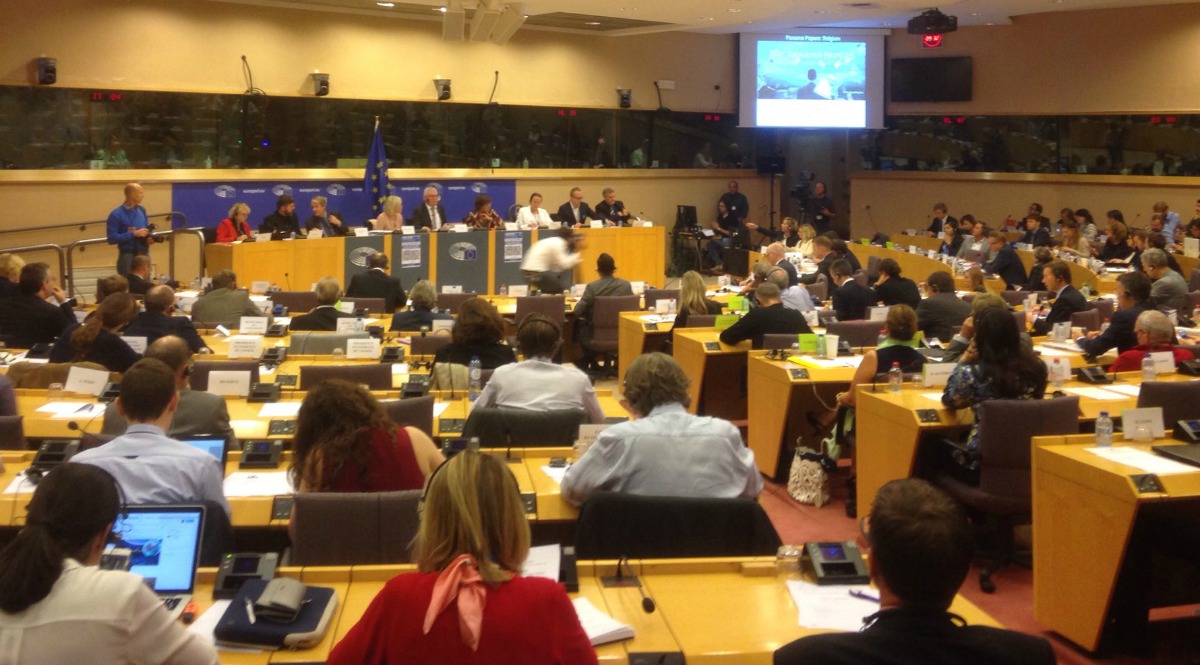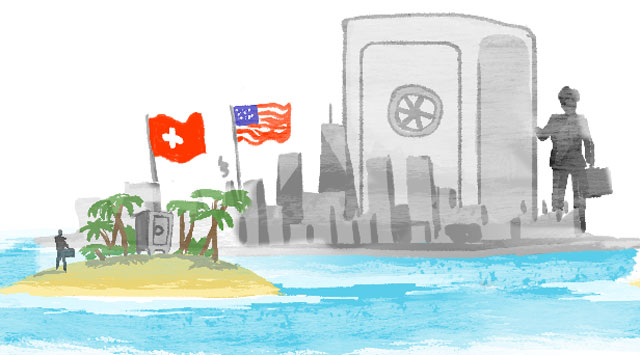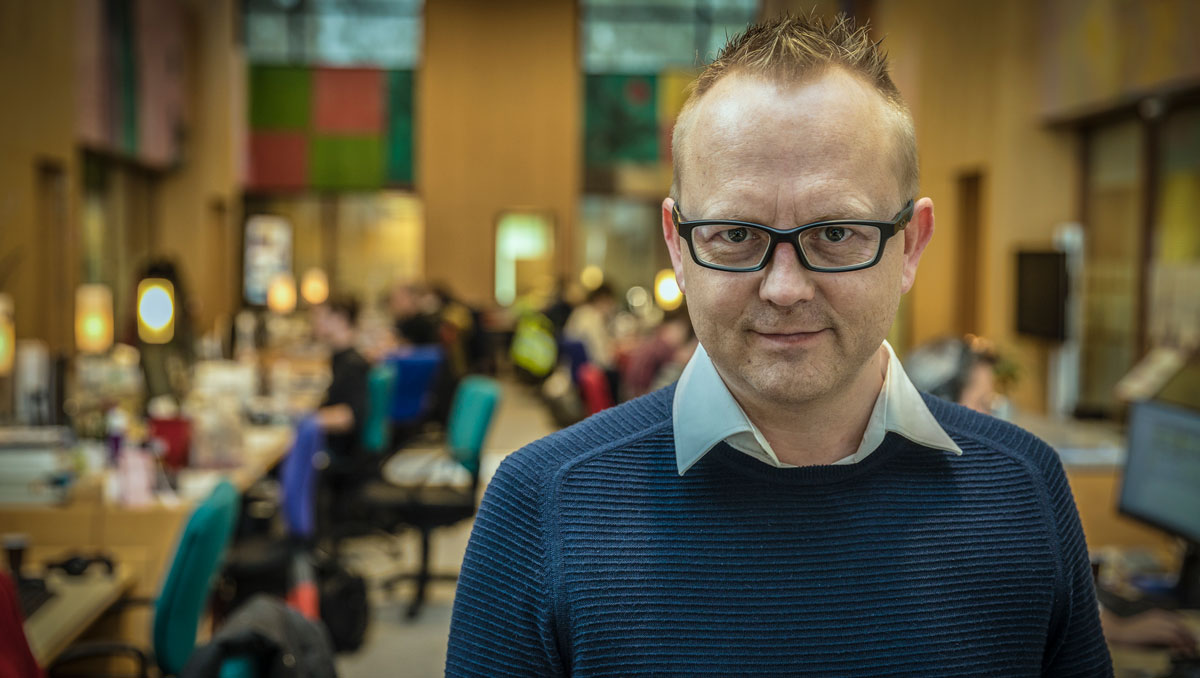ICIJ has hundreds of members across the world. Typically, these journalists are the best in the country and have won many national and global awards.
Our monthly series, Meet the Investigators, highlights the work of these tireless journalists. This month, we speak with Oliver Zihlmann, an investigative reporter who has worked on several of ICIJ’s financial investigations, including Swiss Leaks and the Panama Papers. Follow him on Twitter here.
What drives you to be an investigative journalist?
In the Swiss Leaks investigation we found that 2,846 French residents, who were subject to taxes in France, had assets in HSBC Bank in Geneva. Just six of them declared the wealth they had stored in Switzerland to the French tax authorities. That’s 0.2 percent. The rest – 99.8 percent – cheated, all thanks to Swiss tax laws.
The job we do here as investigative journalists is among the few ways to actually bring change to one of the most important tax havens in the world.
We are a very rich and well-organized country, but if we help rip off other countries on such a scale, someone has to speak out. Unfortunately, there are not many willing to do that in our country. It takes either a U.S. prosecution or a data leak to raise awareness.
So the job we do here as investigative journalists is among the few ways to actually bring change to one of the most important tax havens in the world. That’s a powerful motivation for me and for my team to work in this field.
Tell us a little about yourself and how you got into investigative journalism?
I am 46, and the father of four. I live in Basel – that’s in the German-speaking part of Switzerland, just on the border of France and Germany.
Earlier in life, I wrote a book on a diplomatic scandal in Berlin and did a dissertation at the University of Basel on public apologies by heads of state. But since the 1990s I have mainly worked as a journalist, first with the Swiss national broadcaster SRF, then as a correspondent for Tamedia Newspaper SonntagsZeitung in Berlin. In 2012, I became head of the new investigative unit of SonntagsZeitung and Le Matin Dimanche based in Lausanne.
What are some of the stories you are proudest of?
There are the leak investigations obviously: Swiss Leaks, Panama Papers, and Paradise Papers, which won the Zürcher Journalistenpreis, the most prestigious journalism prize in Switzerland. The investigations into the use of offshore accounts to avoid taxes are now leading to significant changes in Swiss laws.

Personally and apart from the investigations, I was most invested in a story of an Olympic athlete, Samia Yusuf Omar from Somalia. She competed in 2008 in Beijing in the 200-meter sprint. After the Olympics, she could not exercise anymore in Somalia, because Islamists saw her run on TV without a veil. She tried to flee Somalia to get to the Olympics in London 2012, because the Islamists refused to allow her to participate. She joined a refugee trek through the Sahara and ultimately drowned in the Mediterranean on her way to Switzerland. I reconstructed her journey.
What are the major advantages and challenges of being an investigative journalist in Switzerland?
We are very well equipped and staffed. But stories on white-collar crime are especially hard to sell here, simply because there are so many of them, and people click away. We really have to come up with a special angle in order for them stand out and get attention.
Do you feel like your reporting will lead to real changes in Switzerland when it comes to financial secrecy?
Yes, just recently the government proposed substantially stricter anti-money-laundering laws as a consequence of the Panama Papers reporting. Paradise Papers helped build support for additional legislation that would tighten controls over commodity trading giants such as Glencore and Vitol.
Since you started your career, how has the media environment changed – for better or worse?
For worse. Budgets have been tightened across the board, and the journalism workforce has been reduced significantly. Within Tamedia, this has so far not touched the investigative unit.
Tell us a little about how you work? Do you have any good stories about successes or failures you have had as an investigative journalist?
The good news is that our publisher, Pietro Supino, is a big supporter of investigative journalism and allows our journalists to train in the United States. We also have had big successes in collaborative journalism – on an international level with ICIJ but also on a national level in our joint German-French unit, that now produces investigations in both languages for 15 newspapers within Tamedia.
What advice would you give someone who wants to be an investigative journalist?
The problem today is no longer that we do not have enough data or sources of data. The challenge is to see the good stories. So my advice is to develop attractive concepts for stories and learn how to pitch them. [Editor’s note: ICIJ is always looking for good pitches!]
No matter from where you come from, how old you are or what professional background you have: If you come up with a really strong investigative idea, chances are very good you can do it somewhere, and thus get your foot in the business.
Is there anything I haven’t asked that you would like to comment on?
There is a trend worldwide to more authoritarian leadership in politics. In extreme cases, such as Russia or Turkey, journalists are always among the first to feel the impact. This means we need to be on guard to make sure we do not lose freedoms and liberties we have fought so hard to obtain.



